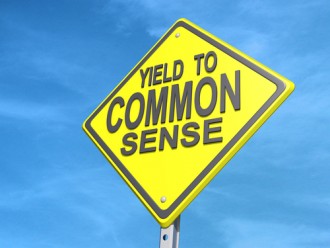
September 25, 2020
Finding Claims Non-obvious Was Not Error, It Was the Application of the Proper Evidentiary Standard
In Apple Inc. v. VOIP-PAL.com, Inc., [2018-1456, 2018-1457] (September 25, 2020), the Federal Circuit affirmed the PTAB’s determination that claims of U.S. Patent No. 8,542,815 and 9,179,005 were not invalid for obviousness. The Federal Circuit also affirmed the PTAB’s imposition of sanctions against VOIP-PAL.
The ‘815 and ‘005 patents describe the field of invention as “voice over IP communications and methods and apparatus for routing and billing” and relate to routing communications between two different types of networks — public and private.
The Federal Circuit noted that the appeal was moot as to 18 claims that a court held were directed to unpatentable subject matter. As to the 15 remaining claims, the Federal Circuit rejected Apple’s argument of mootness, and considered the merits of the non-obviousness determination.
Apple argued that the Board violated the Administrative Procedures Act (“APA”) and its due process rights when the Board imposed non-enumerated sanctions for VOIP-Pal’s ex parte communications. The Board’s actions were reviewed for abuse of discretion, which is qualified if the sanction includes any of the following criteria:
- The sanction is clearly unreasonable, arbitrary, or fanciful.
- The sanction is based on an erroneous conclusion of law.
- The sanction rests on clearly erroneous fact findings.
- The sanction involves a record that contains no evidence on which the Board could rationally base its decision.
37 C.F.R. § 42.12(b) provides that sanctions “include” those enumerated in subsection (b). The Federal Circuit said that “key” here was that Section 42.12(b) uses the term “include,” which signifies a non-exhaustive list of sanctions. The Federal Circuit held that the plain reading of Section 42.12(b) provides the Board with discretion to issue sanctions and that the Board did not commit an APA violation when it issued a sanction not explicitly listed under Section 42.12. The Federal Circuit noted that the Board’s decision to (a) allow Apple to petition for rehearing before a new panel, and (b) provide Apple with a meaningful opportunity to respond to VOIP-Pal’s letters was a reasonable course of action and one that it would not not disturb, and did not find that Apple was deprived of due process.
Apple argued on appeal that the Board legally erred in rejecting its motivation-to-combine argument by improperly applying the now-rejected teaching, suggestion, motivation test rather than the flexible obviousness analysis required under KSR. The Federal Circuit found that the Board did not fault Apple for not citing explicit teachings, suggestions, or motivations to combine the prior art. Rather, the Federal Circuit said, the Board noted that Apple’s expert provided only “conclusory and insufficient” reasons for combining the prior art and failed to articulate reasoning with some rational underpinning. The Board did not legally err but rather held Apple to the proper evidentiary standard.
For more frequently asked questions about patents, check out our comprehensive FAQ patent page.





































